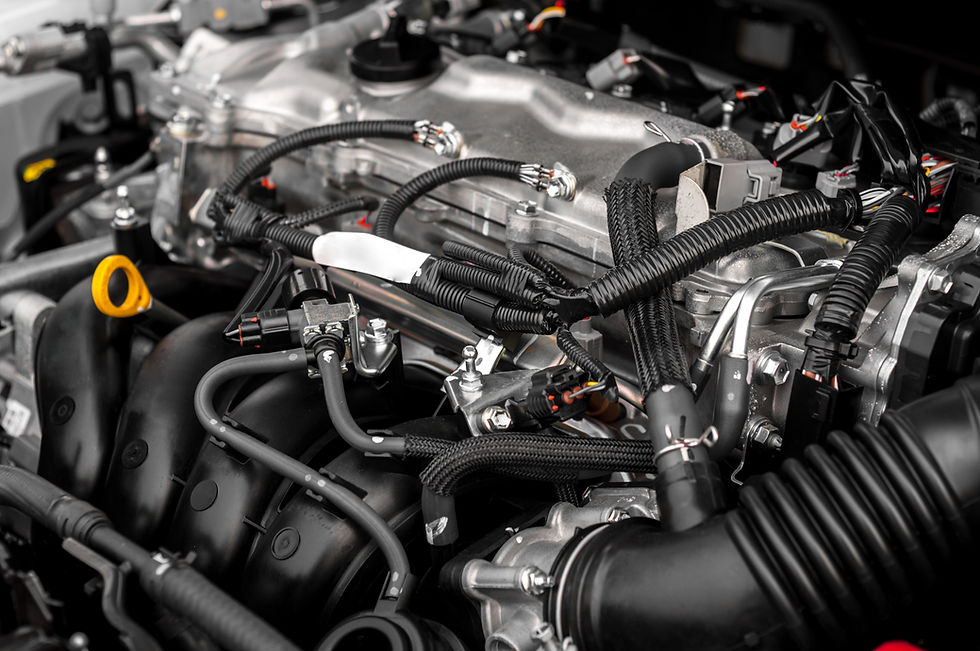How to Educate Your Staff on Operations and Maintenance When You Move to an EV Fleet
- Admin
- Apr 14
- 4 min read

As businesses make the transition to electric vehicle (EV) fleets, the challenge extends beyond simply acquiring the vehicles. To ensure long-term success and efficiency, it’s essential to properly educate and train your staff on the operations and maintenance of these vehicles. Transitioning to an EV fleet requires a shift in mindset, skill sets, and operational procedures, and staff must be equipped with the knowledge to manage this new technology effectively.
The first step in preparing your team is to provide a clear understanding of what EVs are and how they differ from traditional internal combustion engine (ICE) vehicles. While the core principles of driving remain the same, EVs operate using completely different systems. Electric motors, regenerative braking, and battery management systems are all crucial aspects of EVs that your staff must understand. Staff members who will interact with the vehicles daily need to know the basics of how EVs work and what makes them different from their gas-powered counterparts.
The Charging Infrastructure
One key area of focus is charging infrastructure. Employees responsible for fleet management must be familiar with how the charging process works. This includes understanding the different types of chargers (Level 1, Level 2, and DC fast chargers), their respective charging times, and how to optimize charging schedules for maximum efficiency. Staff should be trained on how to use charging stations, troubleshoot common issues, and ensure that vehicles are being charged correctly. It’s also important to provide guidance on how to manage charging costs, especially if the fleet operates across multiple locations.
In addition to understanding the vehicles themselves, employees must be familiar with the routine maintenance and care required for EVs. Unlike ICE vehicles, EVs have fewer moving parts and typically require less frequent maintenance. However, there are still important aspects of maintenance that staff should be trained on, such as monitoring battery health, ensuring proper tire pressure, checking fluid levels, and inspecting braking systems. While EVs don’t require oil changes, regular inspection of electrical systems and software updates are necessary to keep the vehicles in optimal condition.
Employee training should also cover safety protocols specific to EVs. While EVs are generally safe to operate, there are unique safety considerations associated with high-voltage systems and battery management. Employees should be trained on how to handle situations like battery fires, electrical malfunctions, and emergency shutoffs. Providing staff with safety training is essential to ensure they can respond quickly and effectively in case of an emergency, protecting both the vehicles and themselves.
Another critical area of training is vehicle diagnostics and software management. Many modern EVs are equipped with advanced software that requires regular updates and can provide detailed diagnostic information. Staff should be familiar with how to use vehicle management systems to monitor the health of each vehicle in the fleet, track performance, and identify any issues before they become major problems. This proactive approach to maintenance will help reduce downtime and extend the lifespan of the fleet.
The Smooth Way to Educate
To facilitate a smooth transition, consider partnering with your EV provider or a third-party expert to offer on-site training sessions for your staff. Many EV manufacturers and service providers offer tailored training programs that can be customized to meet the specific needs of your fleet. Additionally, offering ongoing training opportunities will help ensure that staff stay up to date with any new advancements in EV technology, maintenance practices, and best practices for managing the fleet.
Establishing clear protocols for handling unexpected issues is also essential. While EVs are less likely to experience the same mechanical failures as ICE vehicles, they are still susceptible to specific issues related to the electrical system or battery. Having a robust plan in place for dealing with breakdowns, troubleshooting charging problems, and addressing performance issues will ensure that your fleet continues to operate smoothly.
Finally, it’s important to create a culture of continuous learning and improvement. As the EV industry continues to evolve, new technologies and practices will emerge. Encouraging staff to stay informed about the latest trends, attend EV-related workshops or conferences, and engage with online resources will keep your team at the forefront of the industry and help them manage your EV fleet effectively.
In conclusion, educating your staff on the operations and maintenance of an EV fleet is a crucial step in ensuring the success of the transition. From understanding the fundamentals of EV technology to learning about charging infrastructure, vehicle maintenance, and safety procedures, providing comprehensive training will empower your team to manage the fleet efficiently and confidently. By investing in staff education, businesses can unlock the full potential of their EV fleet, improving operational efficiency and reducing overall costs in the long term.
About Us
Charged UP! is one of the most widely read publications in the EV charging space. Our approach is to take topics that are of interest to everyone and mention companies that provide best in class approaches. To discuss including your products or services, contact us at info@chargeduppro.com
At Charged Up!, we are committed to keeping businesses and individuals informed about the evolving EV landscape. For more updates and insights, subscribe to our newsletter at chargeduppro.com/subscribe.





Comments